02 May Where Pioneering Paths and Plastics Meet…
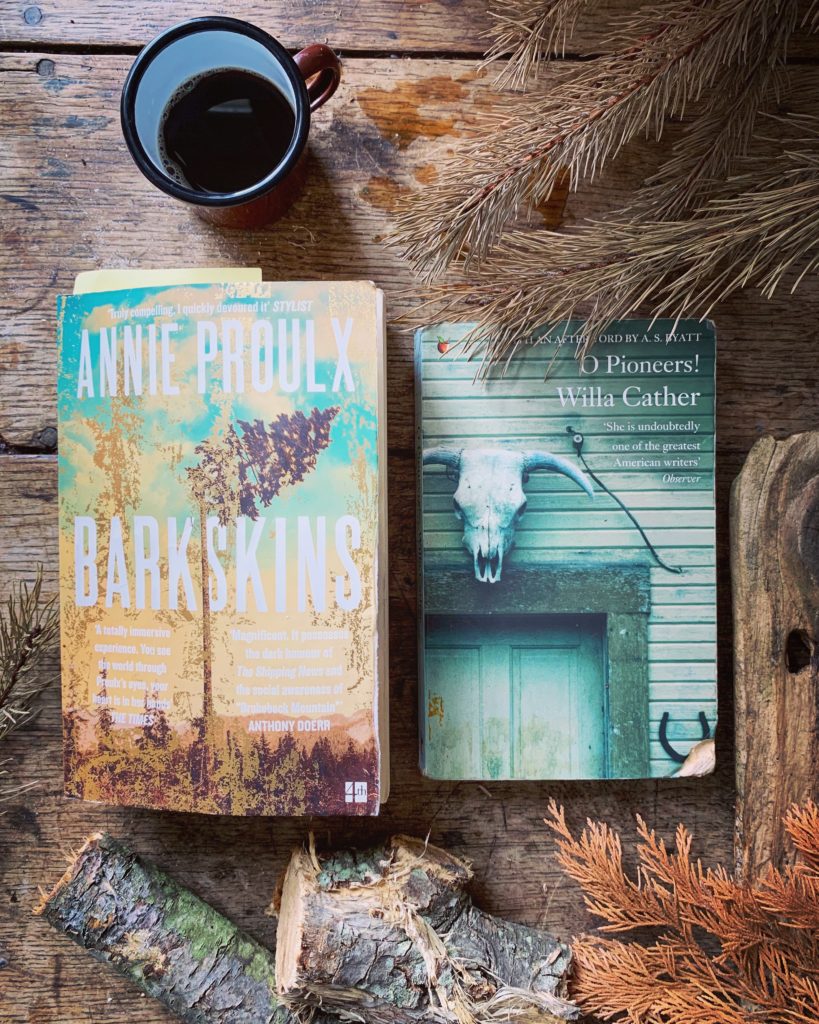
‘Barkskins’ has a cover I don’t much like. It is an enormously thick book and looks at me threateningly…I am not a quick reader. It took me 3 years in my early 20’s to finish Charles Dicken’s ‘The Old Curiosity Shop’. Jo reassures me that she only read the first 200 pages, but thought it was great. To read 200 pages becomes my goal. A goal which encouraged me to at least open the book. I am, of course, absolutely loving it ( even though I’m only up to page 120 ). The synchronicity of the book coming into my life not only ties in with my pioneering fascination, but also resonates with my recent awakening to global consumerism, excessive waste and plastic packaging.
When I started to look at what I was personally consuming at the beginning of this year, particularly my everyday, convenience items, I felt a huge wave of guilt. Guilt for the part I have played in not taking any notice of these things before, not looking at what I consume and not being prepared to acknowledge that my lifestyle could and should change. I also felt complete overwhelm at the thought of a battle that has already been won by plastics, overwhelmed by the amount of years I’ve done nothing and even joked about all the eco hippies in Brighton and overwhelmed by the thought that I may not be able to actually afford to be ‘responsible’. I decided to address changes I felt I could make to my lifestyle by making it all an active experiment, a personal project. I’ve collected and consciously looked at virtually every piece of plastic I’ve bought over the last 4 months and I have learned so much just by simple, detailed looking and observation: The hidden recycling numbers on plastics, the ‘not yet recycled’ messages on things I’d always thought were paper, un-recylable film lids on recyclable plastic trays, Tetra Pak’s embedded with plastic windows and how a bottle of Prosecco might have something for each of my recycling bags ( glass bottle, paper label, plastic label and tin foil seal ). I’ve learned that I only need 4 pints of milk each week, delivered to me in reusable glass bottles. I’ve learned that I can remember to take my reusable coffee cup on trips with me, that I can spend time washing all my recycling in the sink and even get my teenage son to do the same, and also what an Eco Brick is. Taking the bins out has become a triumph, 1 bag a week maximum, and I’ve also changed to an independent local recycling company who collect every Friday. I am now desperate to do something with my food waste which is why I’m hankering after the wormery I mention in my last post. And to top it all, a new and brilliant Refill shop ‘STORE’ opened in January, less than 5 minutes walk away from my house.
However I can’t help feeling acutely aware that this is a ‘project’ that I am able to afford to indulge. It is a financial, middle class privilege which allows me to feel in some small way that I am helping the planet, reducing waste and at least trying to live as a more conscious consumer. This awareness also serves as the reminder of the reasons why I was not prepared to look at the issue before: With very little money coming in and bringing up a child on my own, I would pride myself on intricate domestic planning. My two week food budget was £75 and I would supermarket shop so carefully and so precisely that it never felt like we were lacking. However, I know I would never have been able to be as frugal if I had wanted to shop more responsibly. Shopping at the refill store is absolutely brilliant, but a small bag of staples: cereals, coffee, pulses, rice, washing liquid and shower gels costs around £10 more than it would in the supermarket. The fact that you are refilling and being kinder to the planet is obviously innate, but it’s really not a viable option if you are hard up. I feel like my mission should really be to discover cost effective ways of making responsible consuming easily accessible for people who don’t have a comfortable income.
My own personal discovery has been to witness just how greedy I can be. If I’ve wanted something, then I’ve gone out and bought it. If I’ve wanted a bag of crisps or some Haribo on a car journey then I’ve bought them. But now I am developing the conscience that this want of mine is actually greed. Crisps, sweets and convenience foods in general are mostly not a necessity or a right, but a ‘want’, and ultimately I carry the responsibility of buying into yet more un-recyclable packaging for something that I simply do not need. I am absolutely no angel by any stretch of the imagination, and I do still buy these things, admittedly far less regularly, but I do still buy them…the major difference is that I no longer think that putting the remains in the bin is all that needs to be done to act responsibly…I now at least save the packets and bring them home to fill my Eco Brick. Actively sorting rubbish certainly takes loads more time than just chucking everything in the bin, but I have discovered how easily even a slight shift in my domestic habits has quickly become a new routine, a routine which has completely transformed my perceptions as well as how full my bin gets.
The connections to Annie Proulx’s ‘Barkskins’ are multiple: the abuse of nature due consumerism and greed has evidently been in process for over 400 years. The defiant ignoring and exploitation of indigenous people’s knowledge of nature, the assumption that nature will just keep replenishing itself, and the sadness of those who, understanding the simple joys and benefits of working in sympathy with the land, helplessly watch it disappear. ‘Barkskins’ is a modern book talking about an age old problem which is still in focus, and it is the book’s awareness of this which particularly resonates at the moment. We can look back, even to our own childhoods and think how much more sustainable things were then; I remember way more paper packaging, more glass jars, less choice, less treats and far less throwaway clothes and furniture. But the issue runs far deeper than that.
We have become such massive consumers of ‘stuff’ we do not need. ‘Stuff’ which either makes us feel better about ourselves, comforts us, elevates us or empowers us. I am by no means a minimalist, and I really admire those who are, but I have also never really been a big buyer of lots of new stuff. I like to accumulate old things, things with romance and a past which lots of people might think are scrappy or dirty, but which still have function and design. I’ve always felt quite proud of this amidst the massive DIY eruption over the last 20 years which has encouraged you to constantly reinvent your home interiors cheaply every time trends change. I’ve also felt rather complacent about the fact that I either make my own clothes, buy clothes cheaply, find them second hand or occasionally buy something very expensive to last. Taking the time to find out about the ethics behind how things are made and disposed of is incredibly time consuming and feels like yet another thing to do…and that’s the problem and the answer. These questions, and their answers, take up far more of our time than most of us are prepared to give, unless you are a proper heroic activist. I hugely admire activists, but they also intimidate me; their knowledge and experience is so vast and they do such good work that it just makes me feel small, foolish and rather impotent and it’s that insecurity which has often stopped me before I’ve even started.
Looking at that massive ‘Barkskins’ book on Jo’s table; the enormity of the reading task ahead of me didn’t entice me in any way whatsoever, but telling myself I could maybe just read the first 200 pages made it feel do-able. We are all able to make small steps and take an interest, even if it takes a while to bring us to any action. We need to be creative on this journey towards a better relationship to consumerism and our planet. We can’t be expected to change our whole lifestyles in an instant, but I do think it’s possible to change our perceptions by personal involvement pretty quickly. Starting to think about what we need rather than what we want, what we can do rather than what we don’t want to do is surely a first step towards a better way of living responsibly. Like I said, I am no angel, no radical activist, I am someone who just really wants to find accessible and responsible solutions for everyone, not just those who can afford it. I want to live more responsibly and in tandem with the environment; I want to do my bit and learn as I go…
Today’s images are focused around some of my plastic observations from the last few months… ( you can also see more in my Stories Highlights on Instagram ) as well as showing you my local refill shop ‘STORE’ along with a few of my thoughts about some of the sustainable products.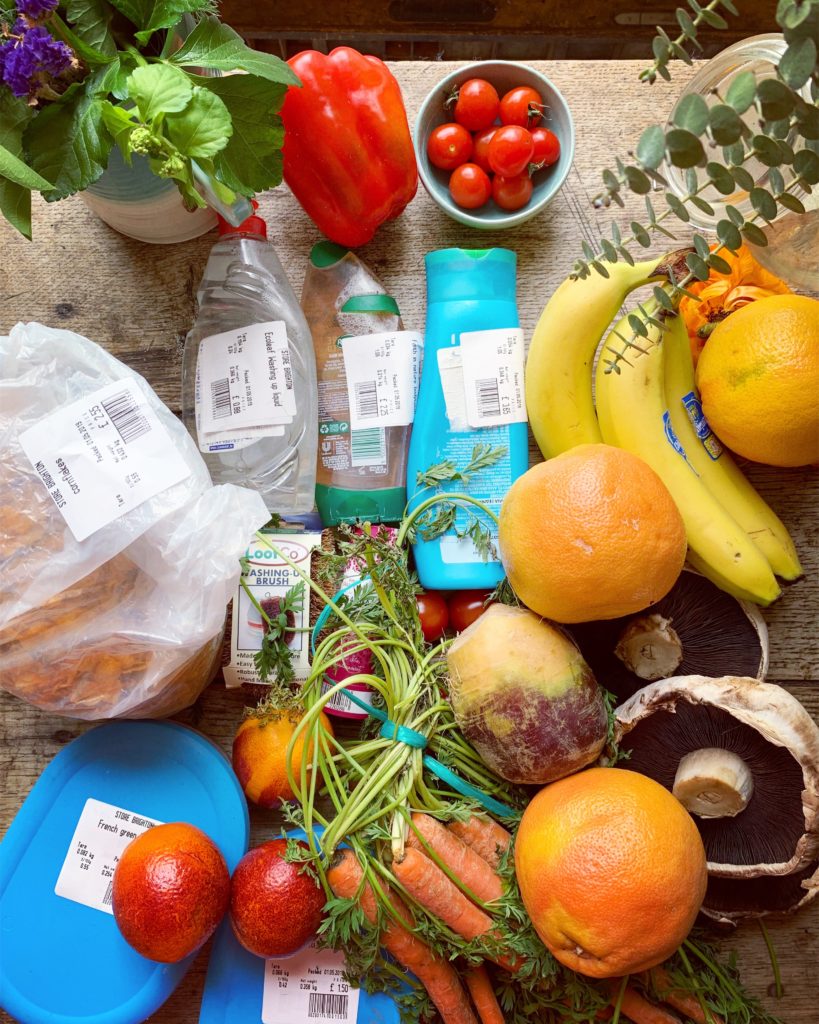
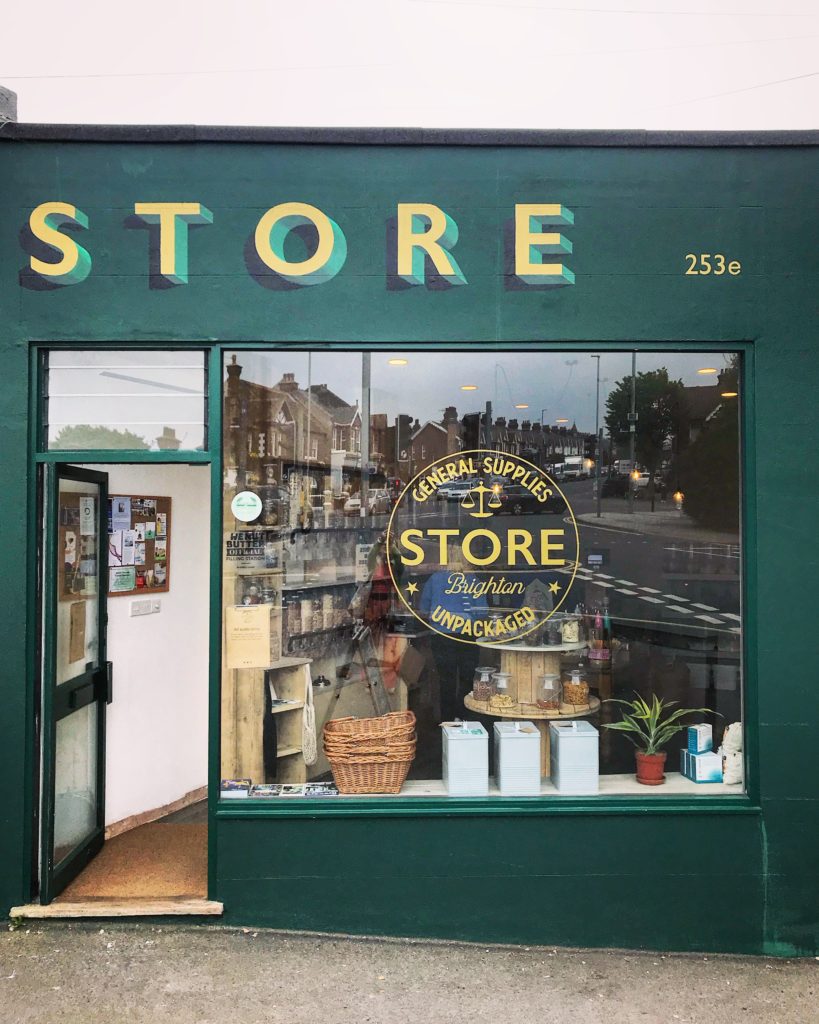
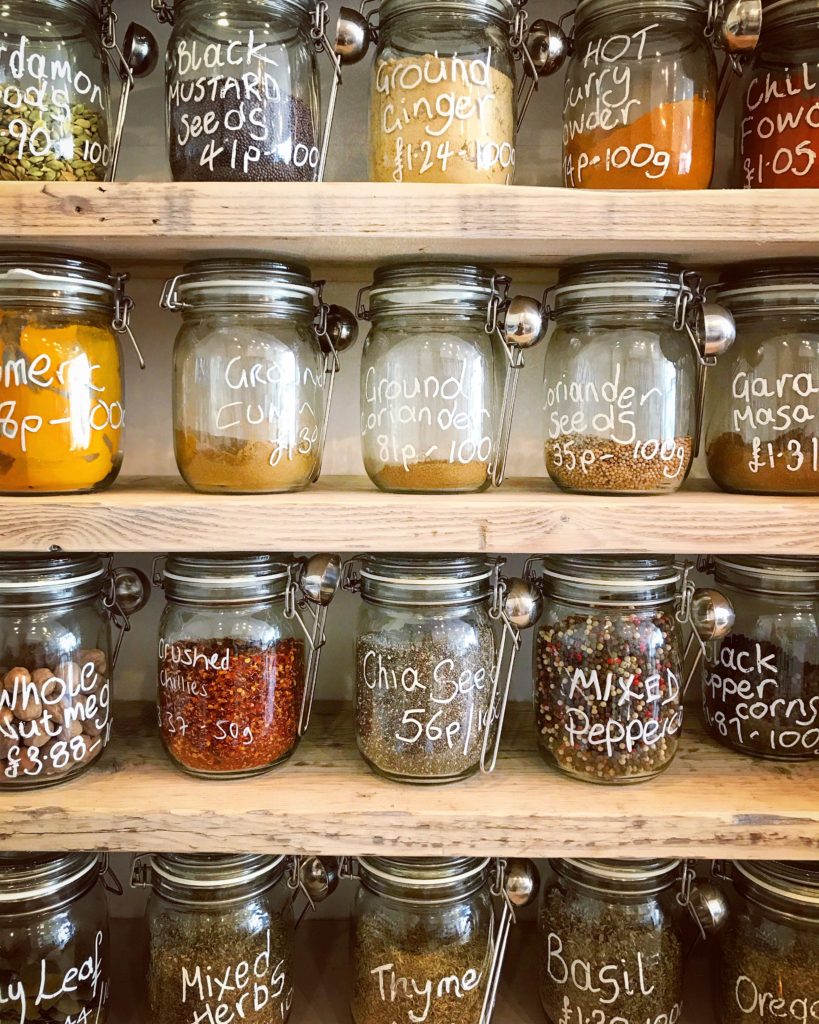
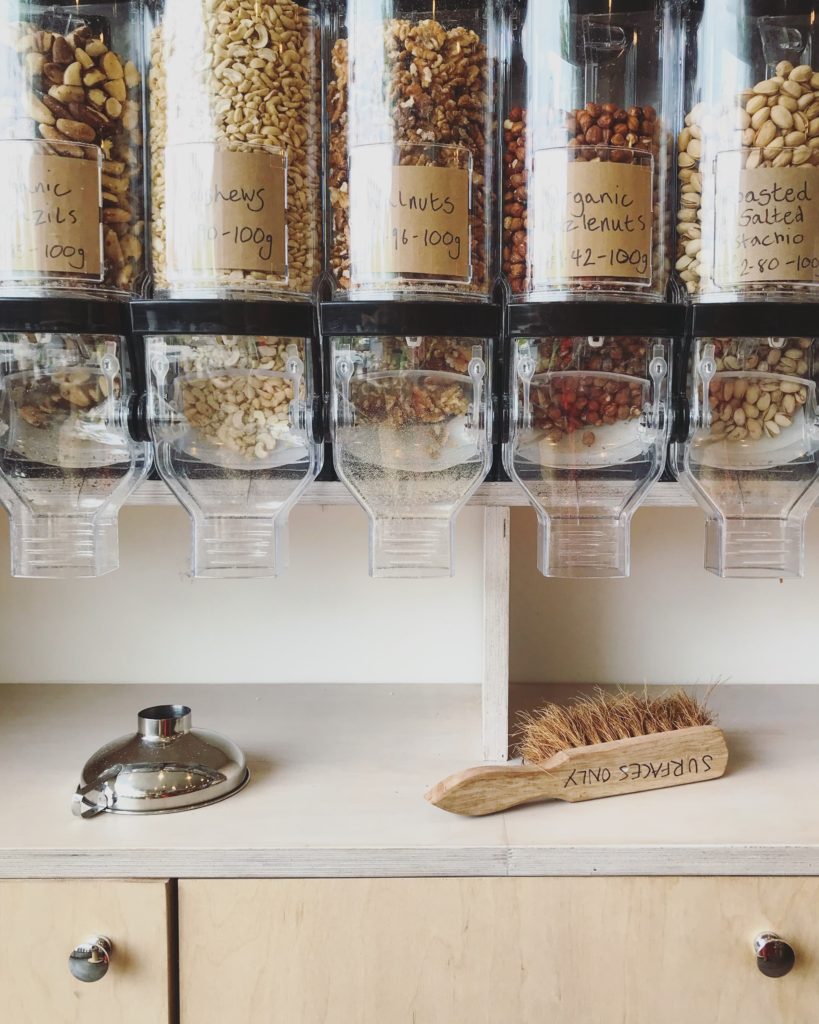
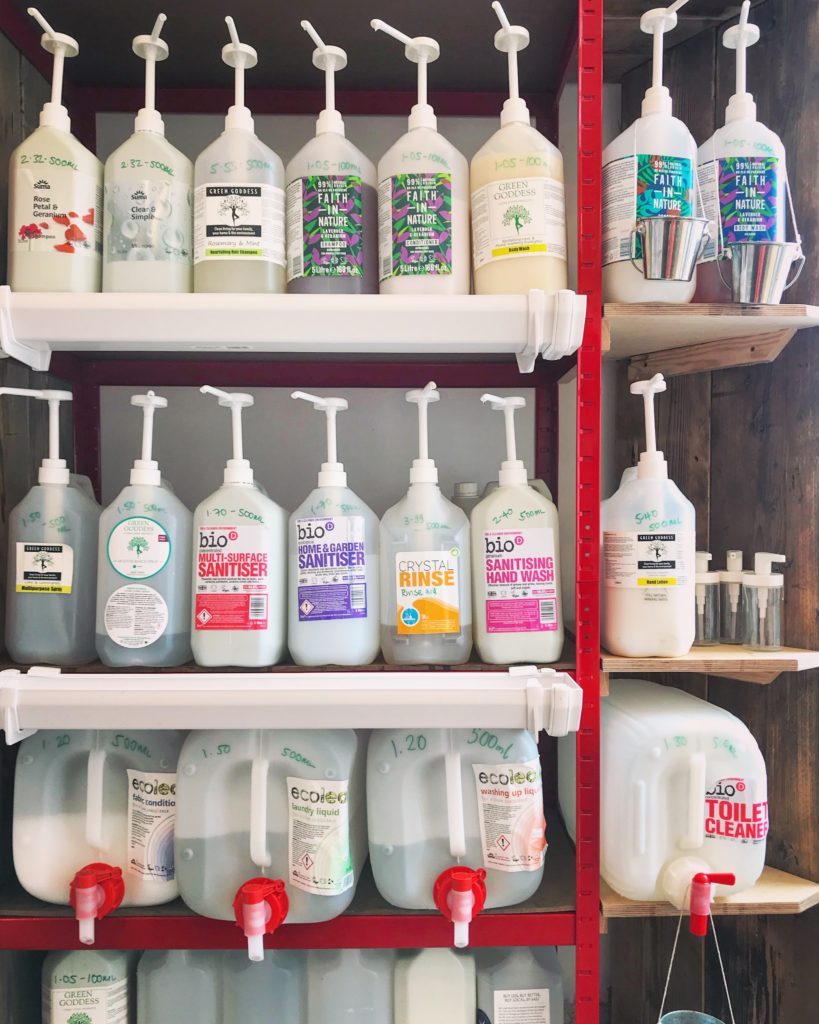
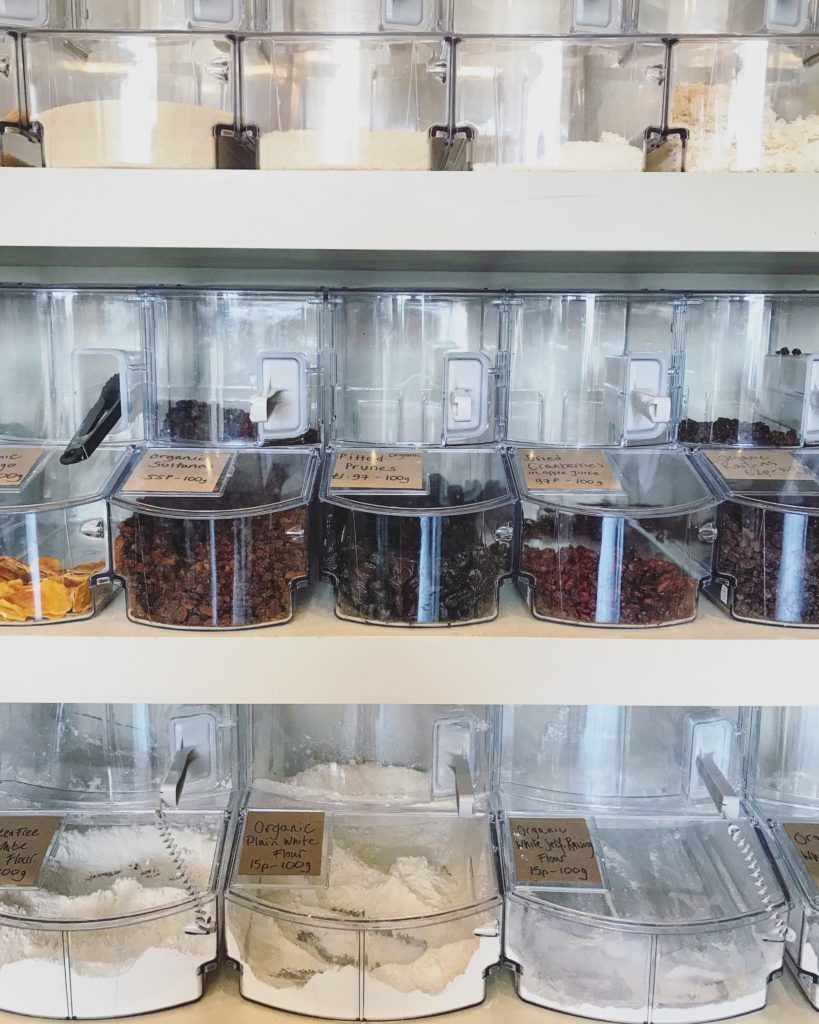
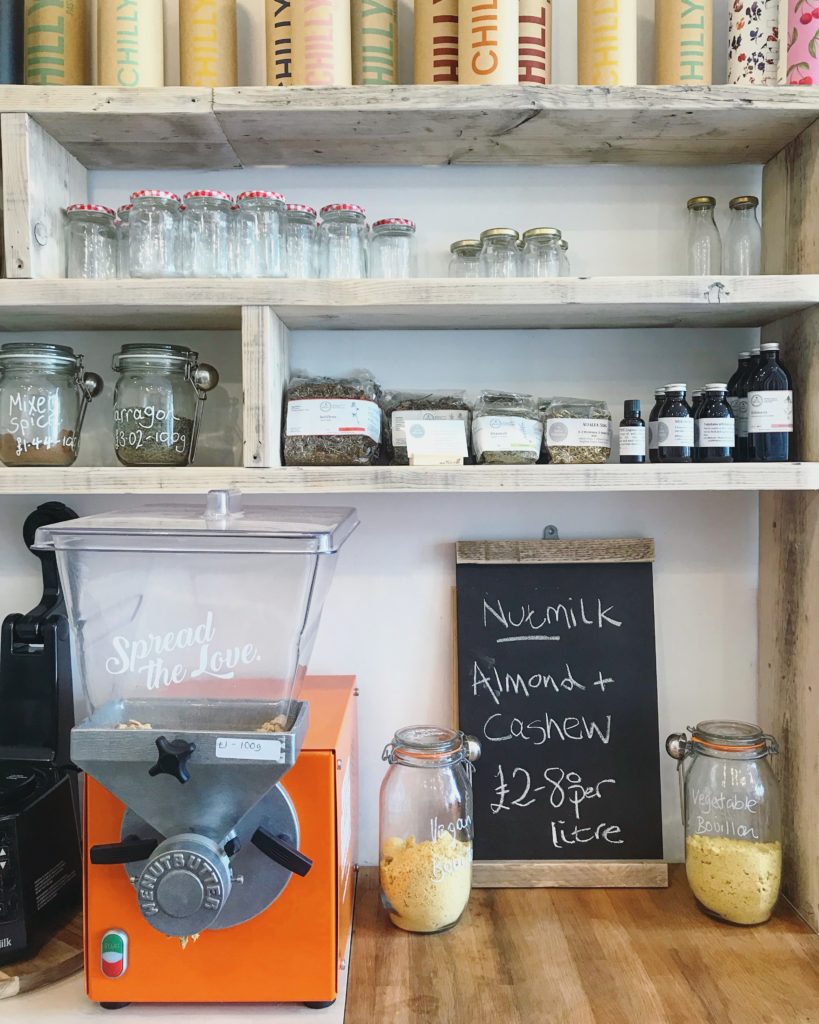
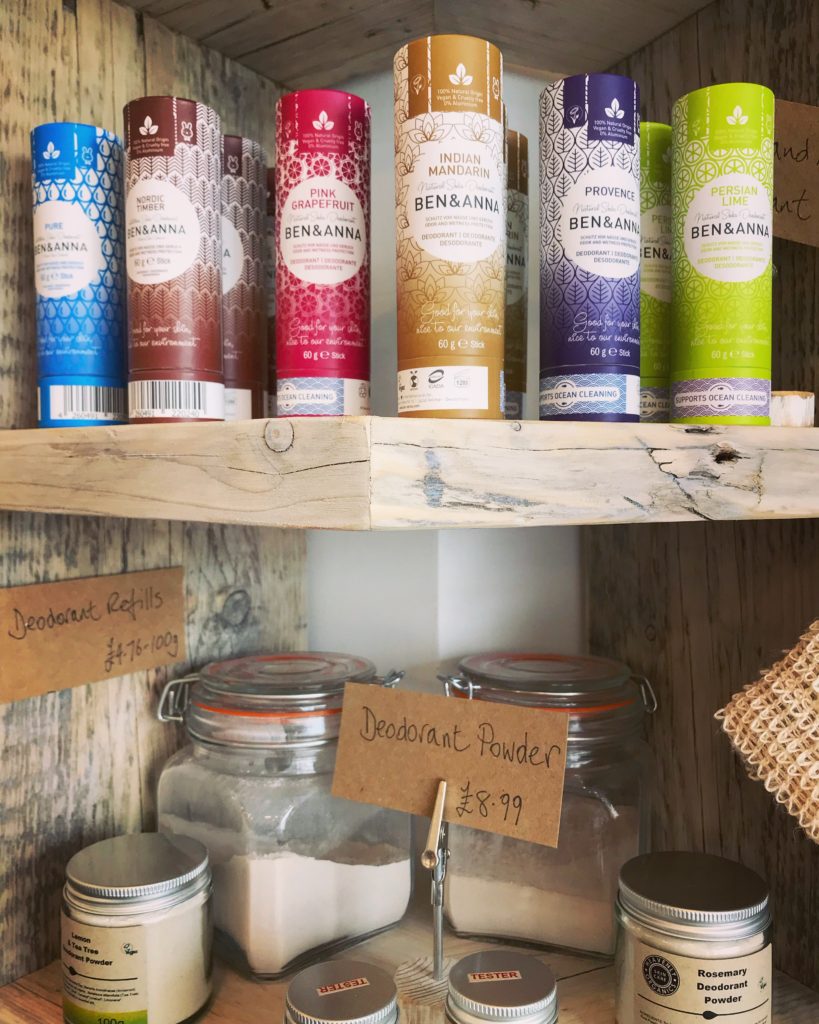
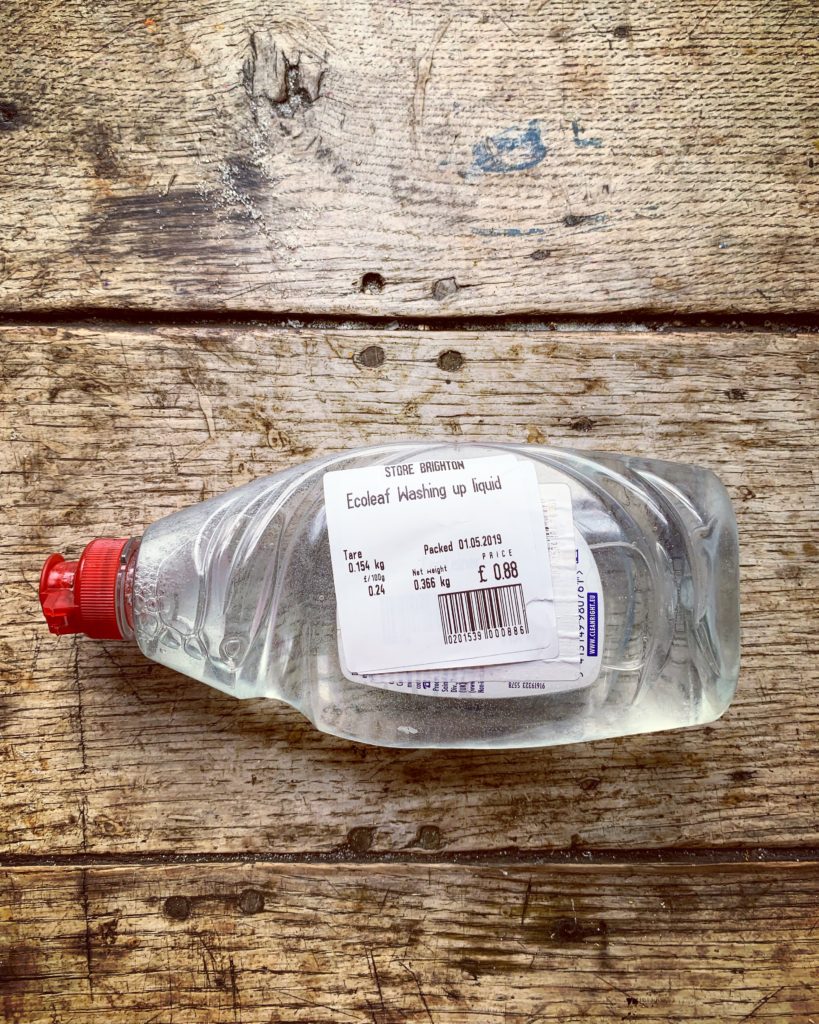
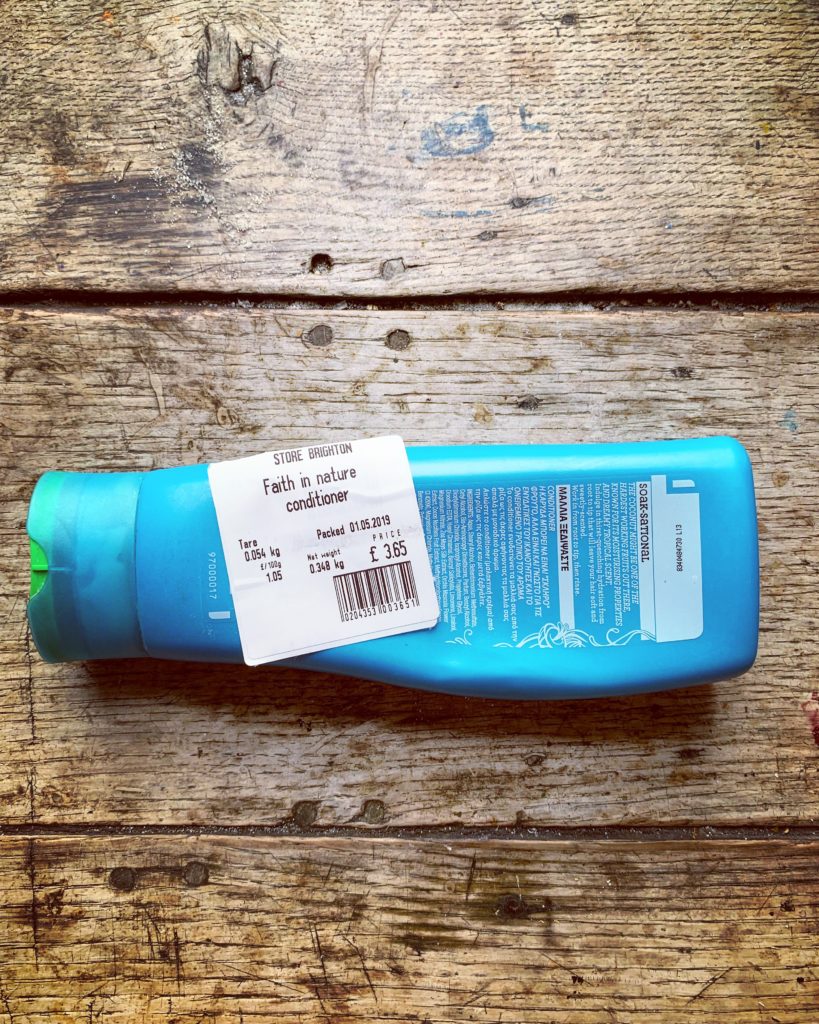
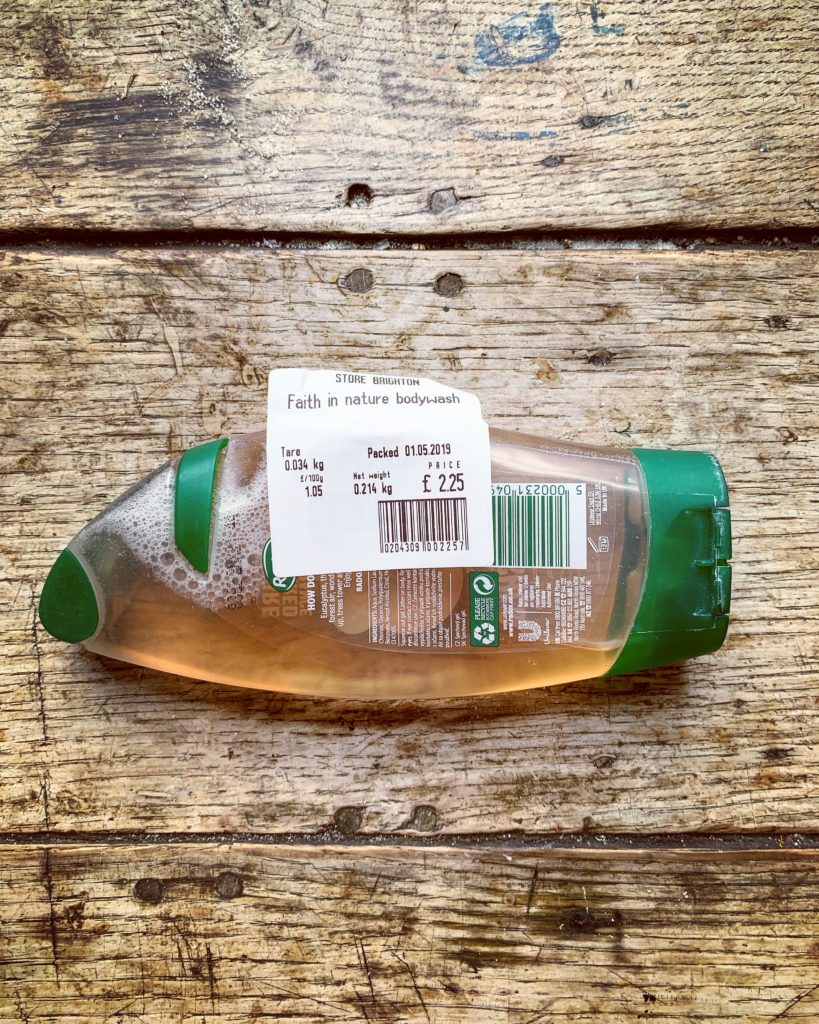
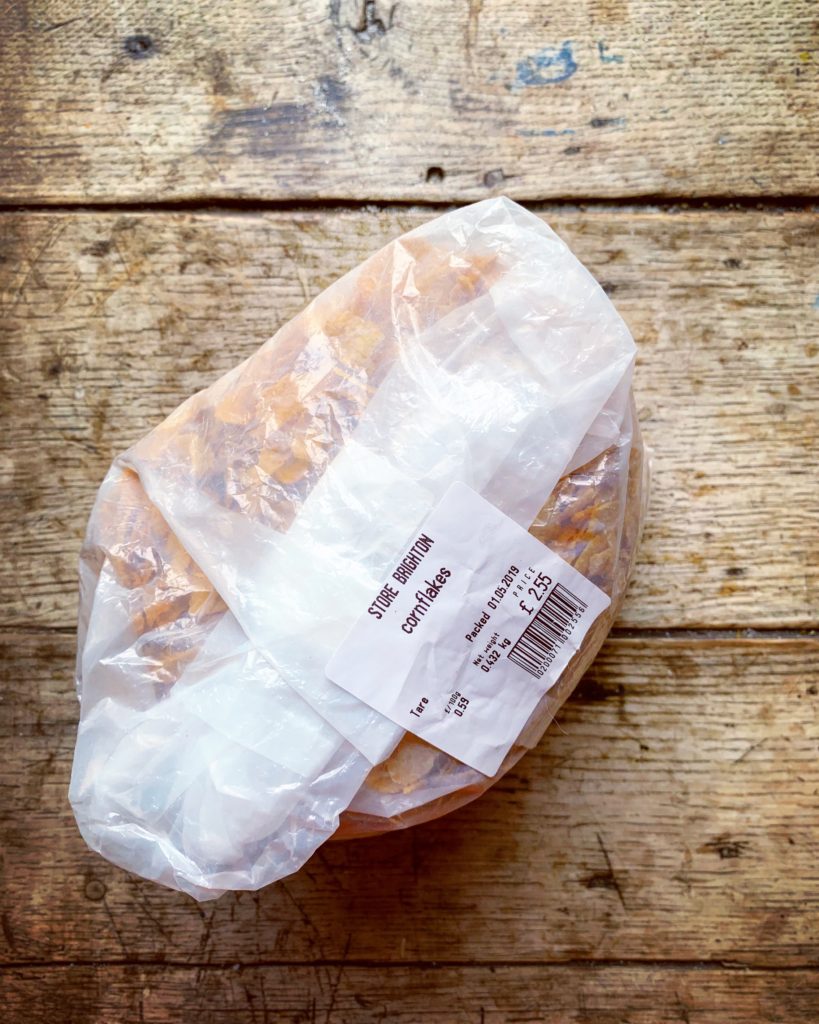
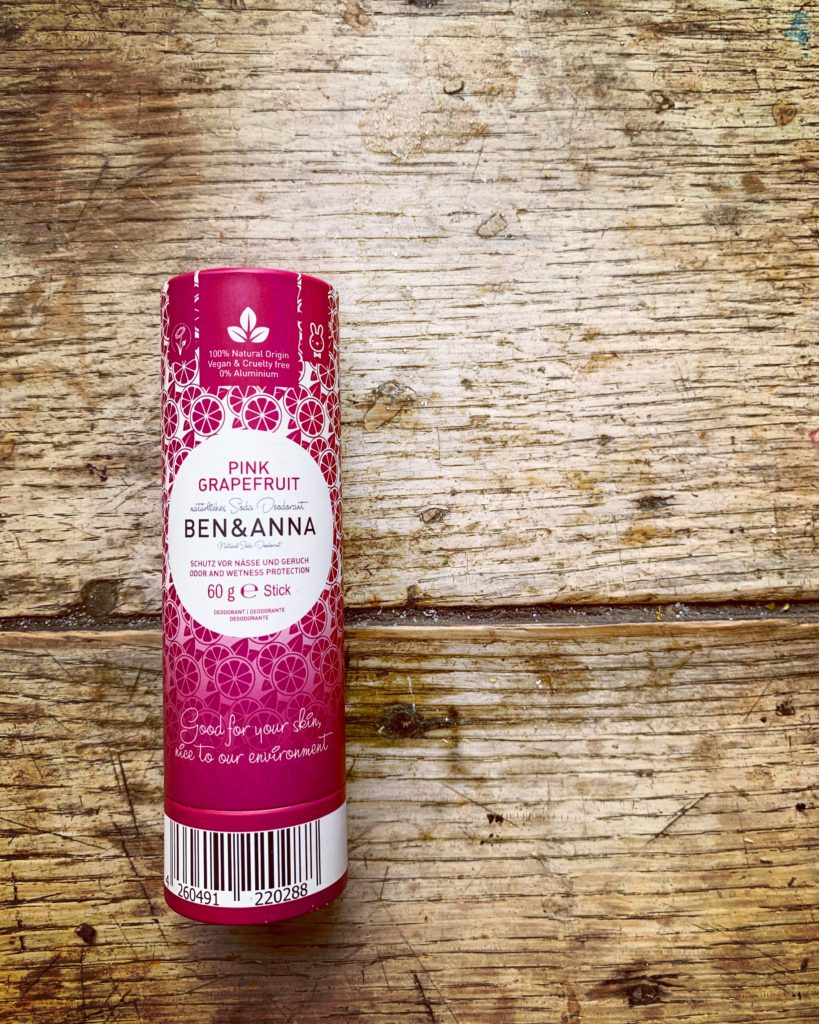

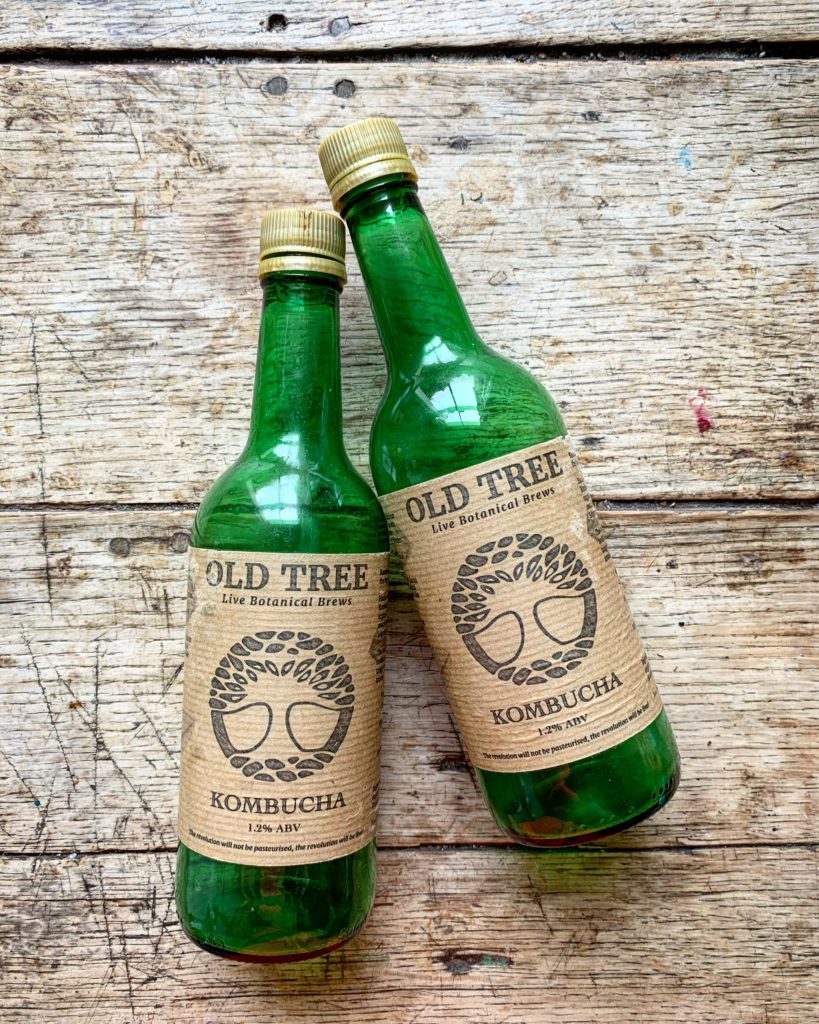
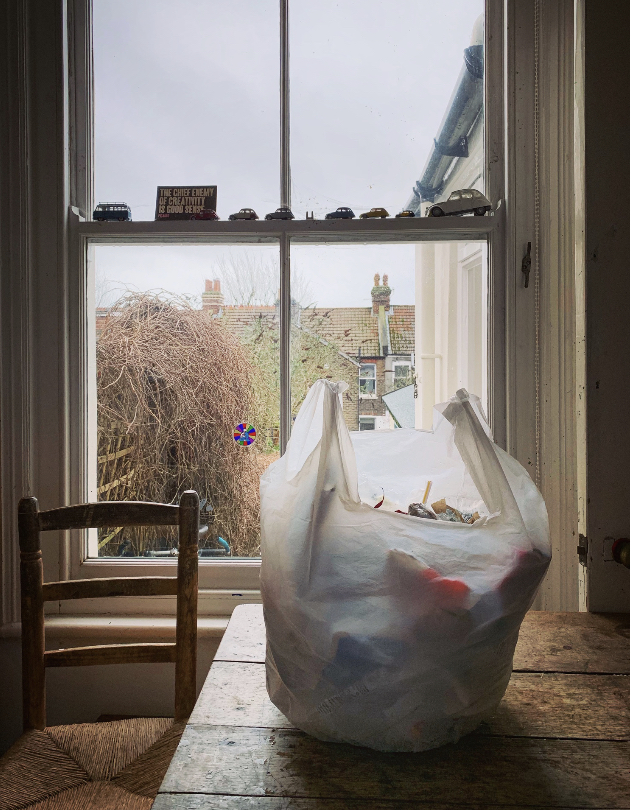
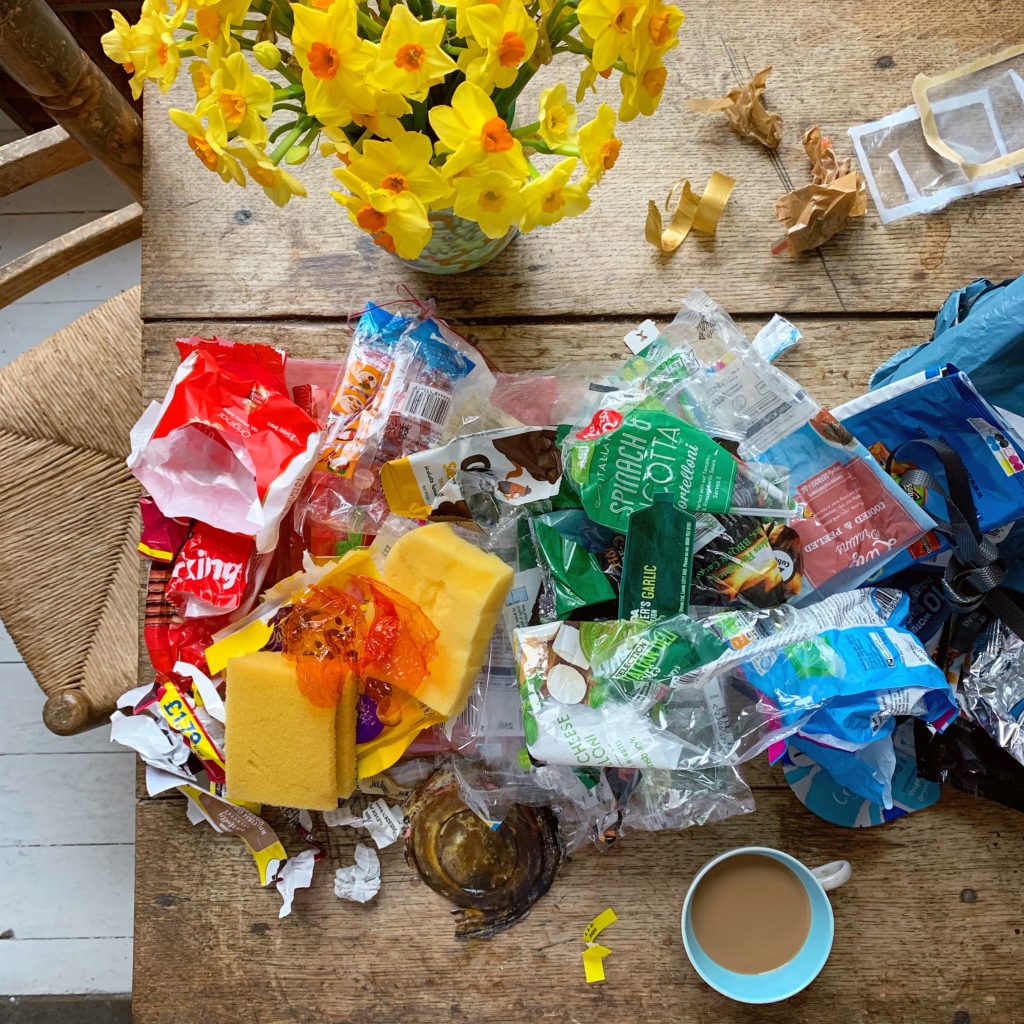
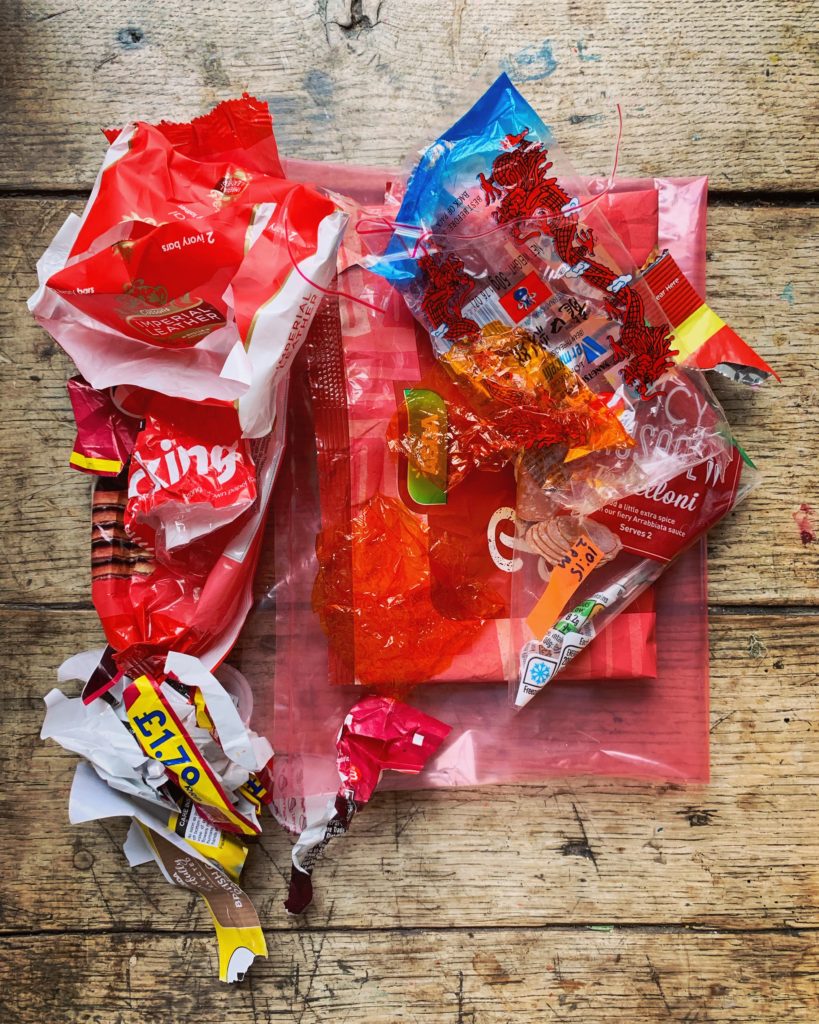
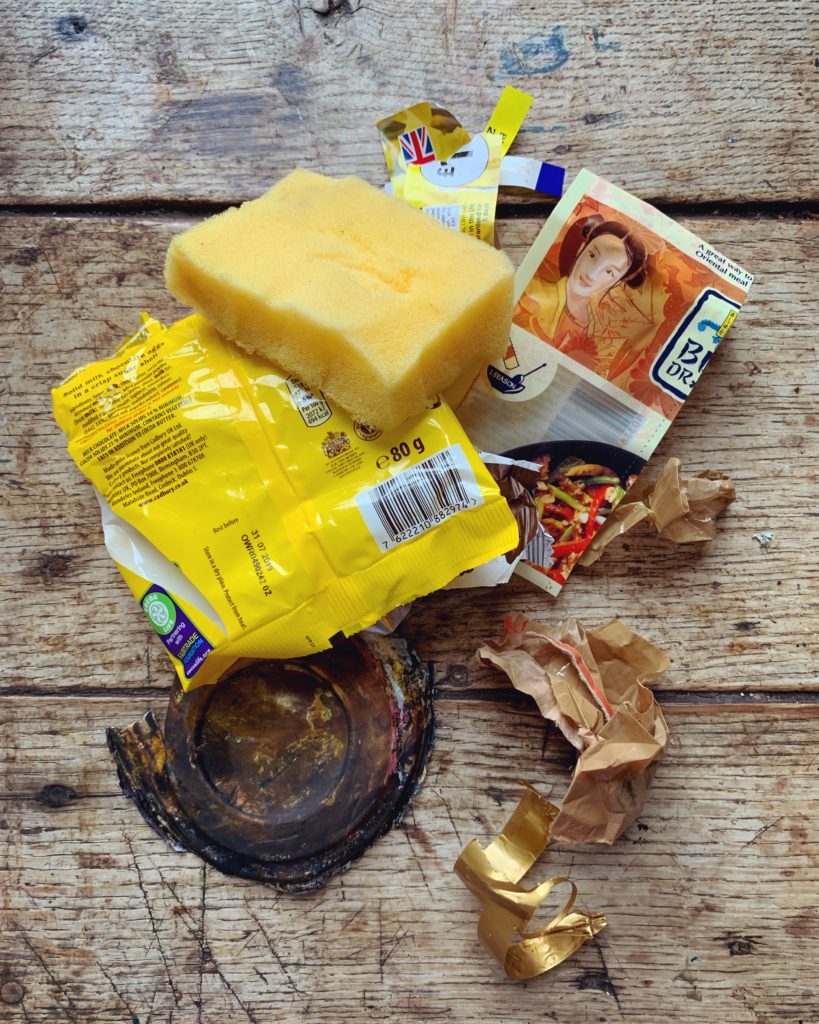
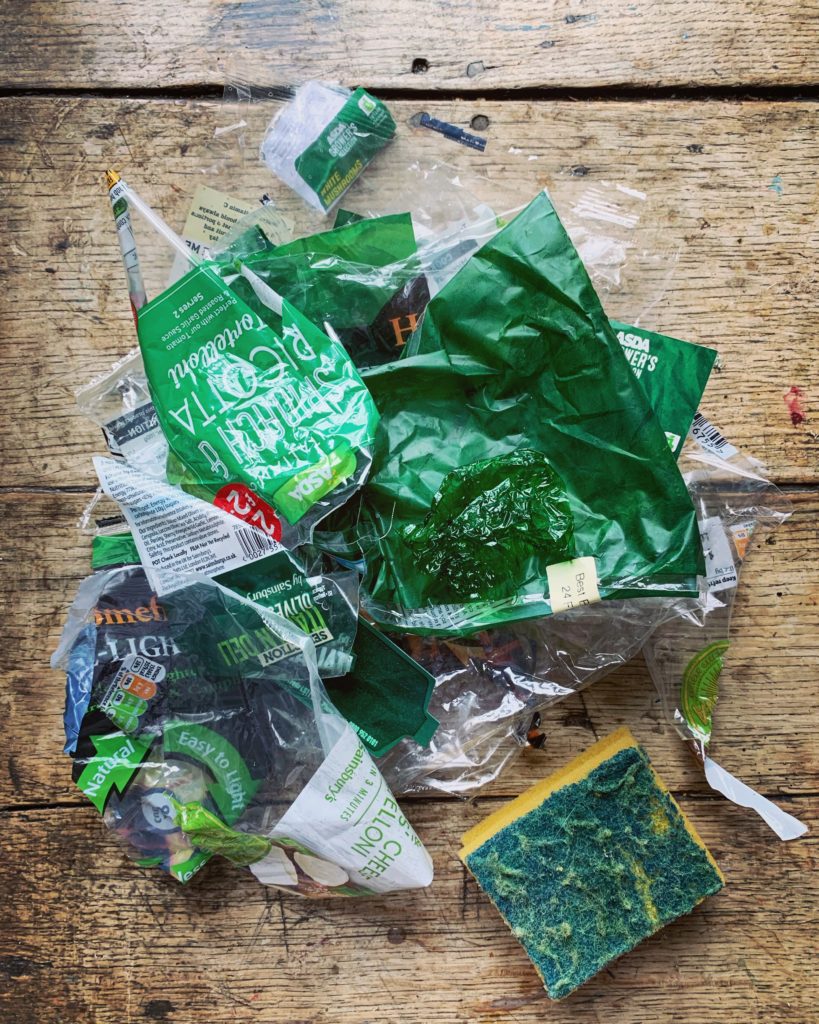
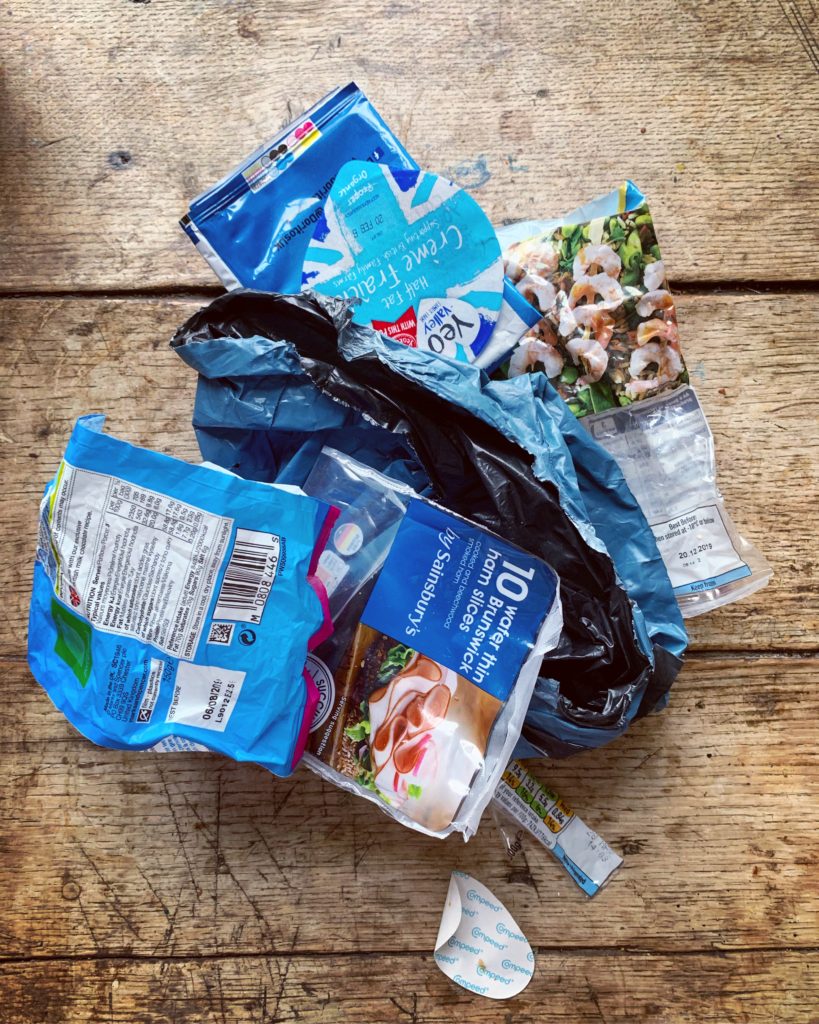
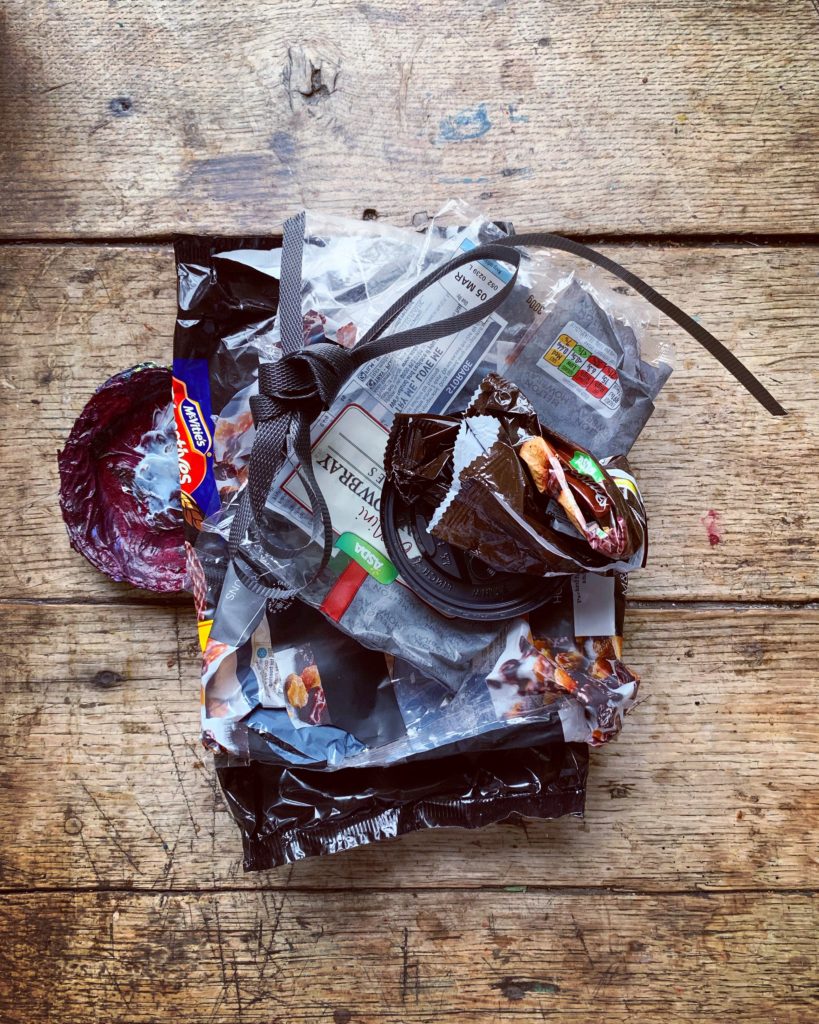
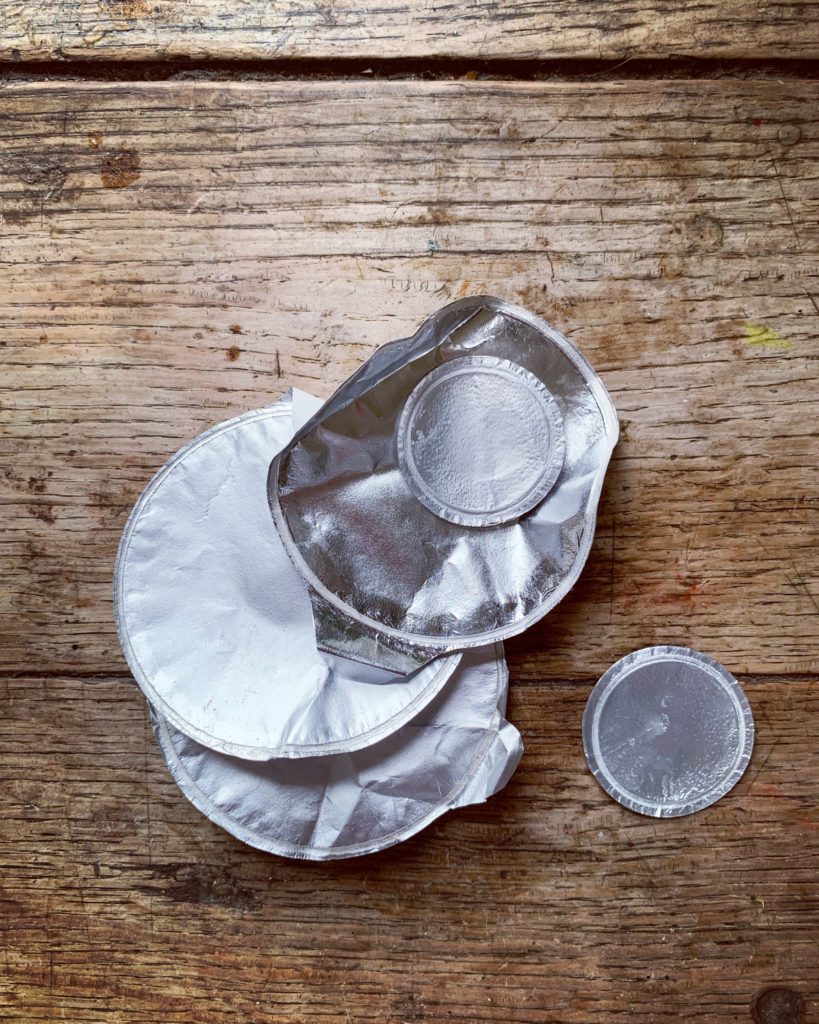
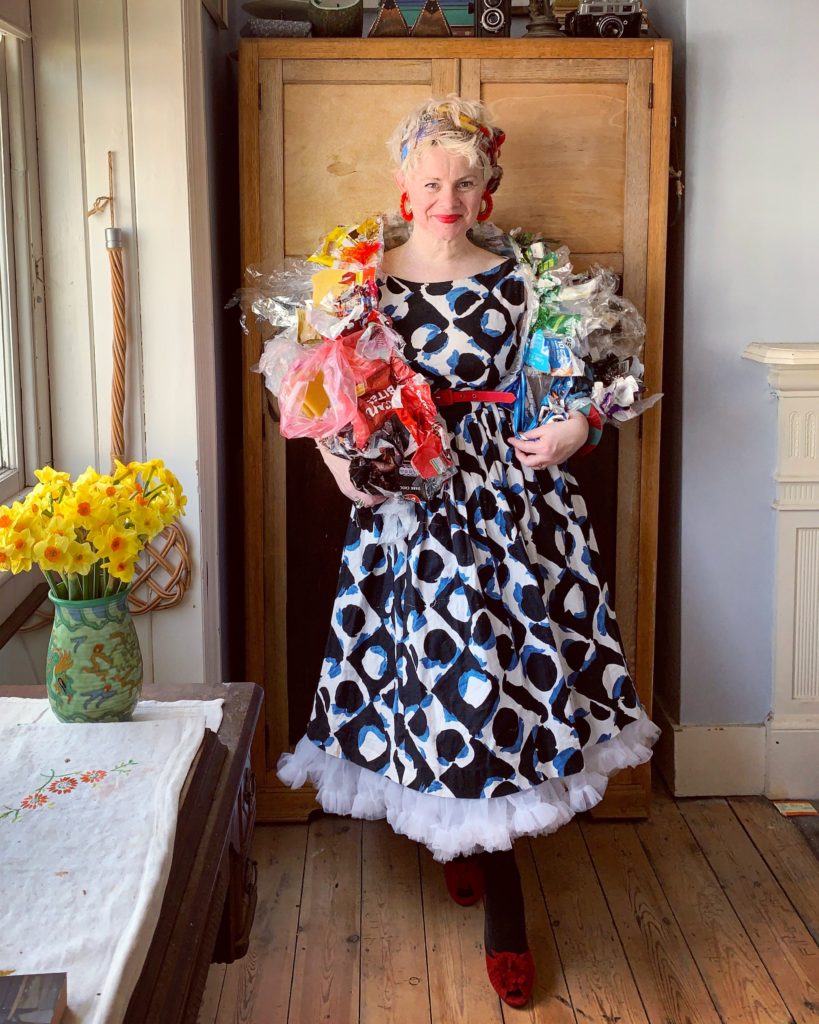
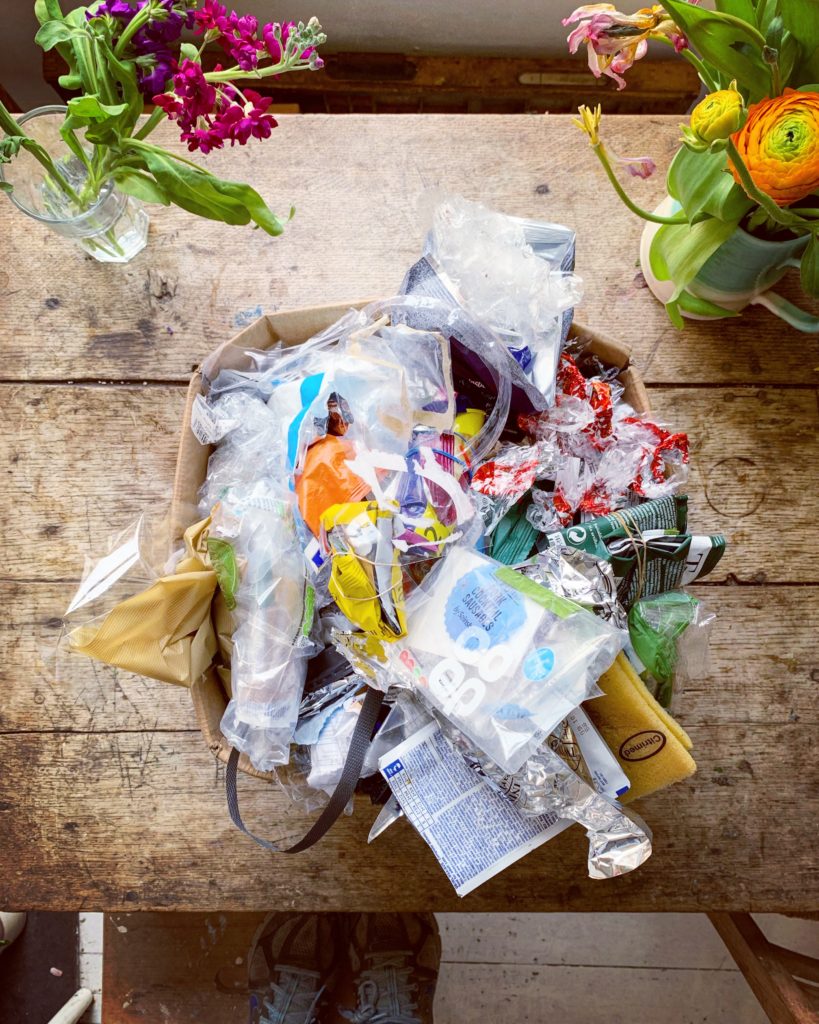
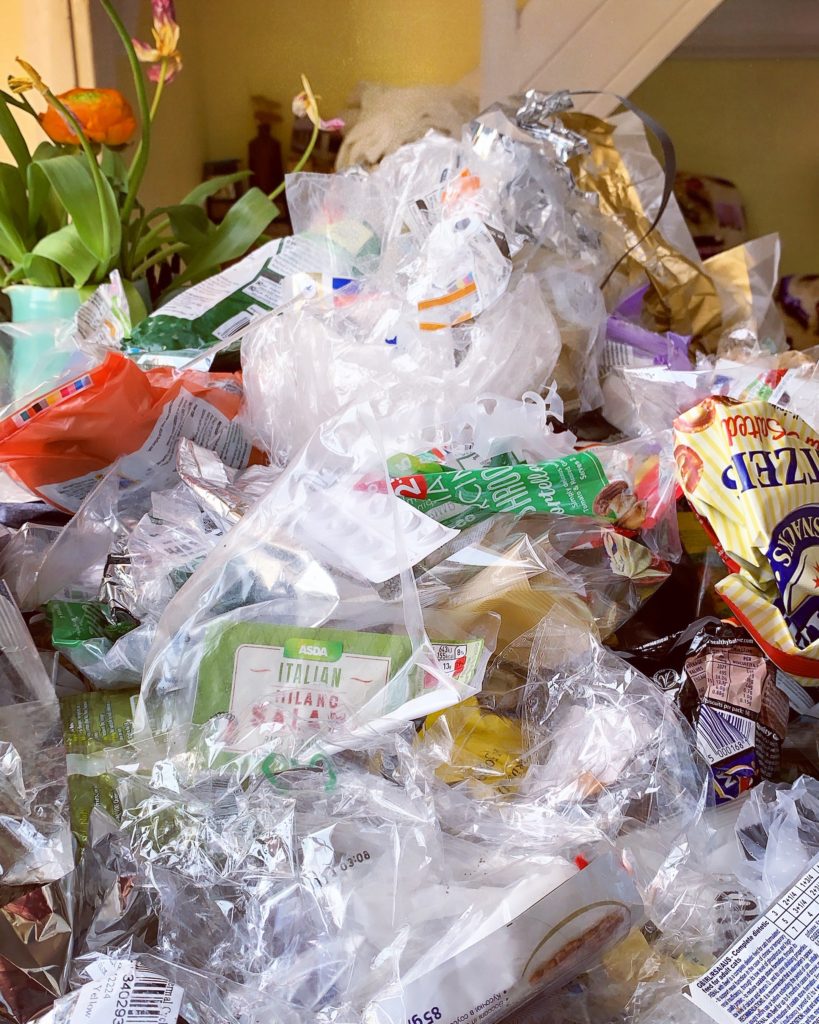
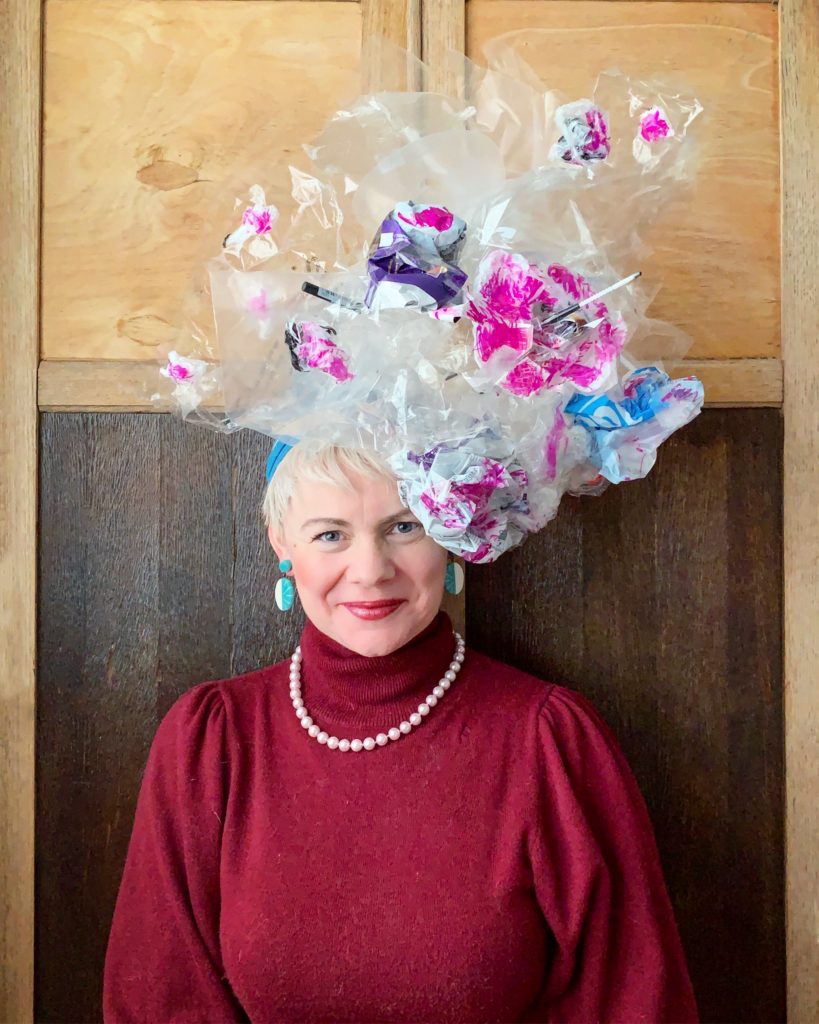
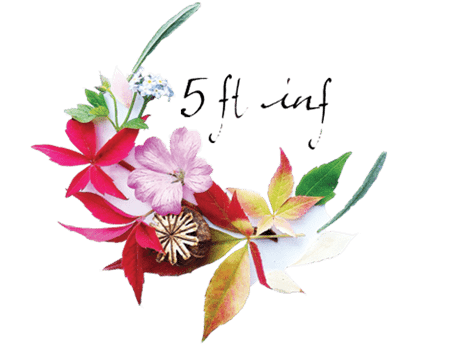


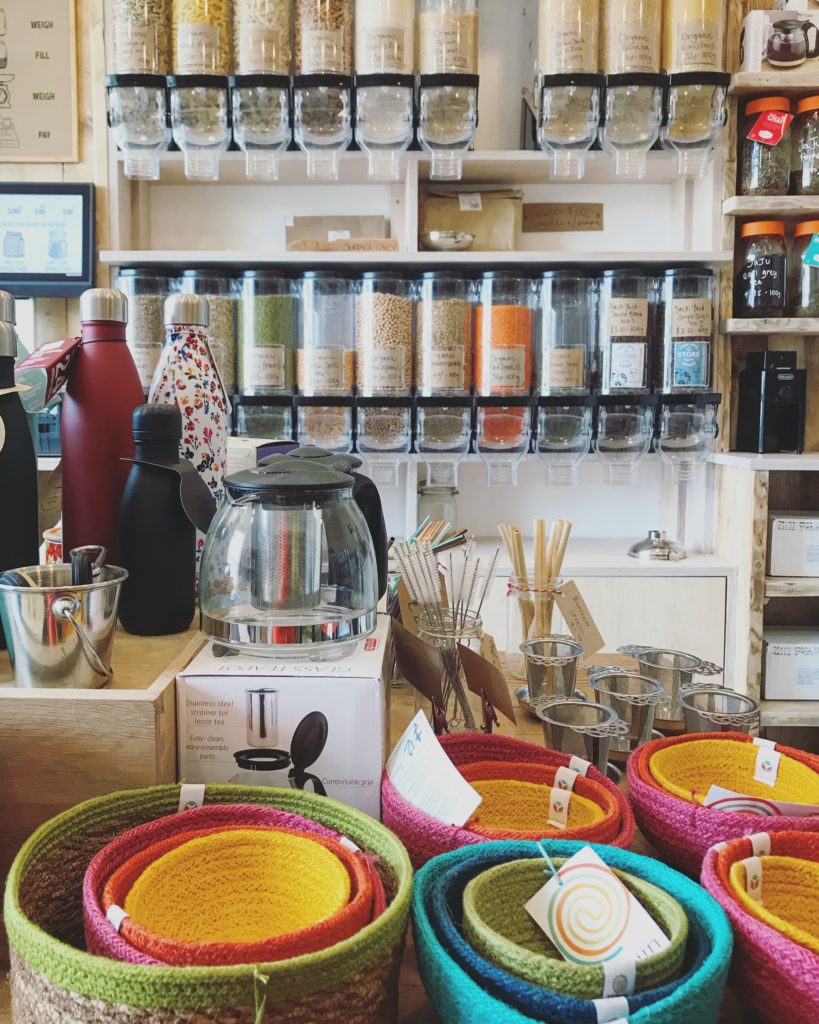
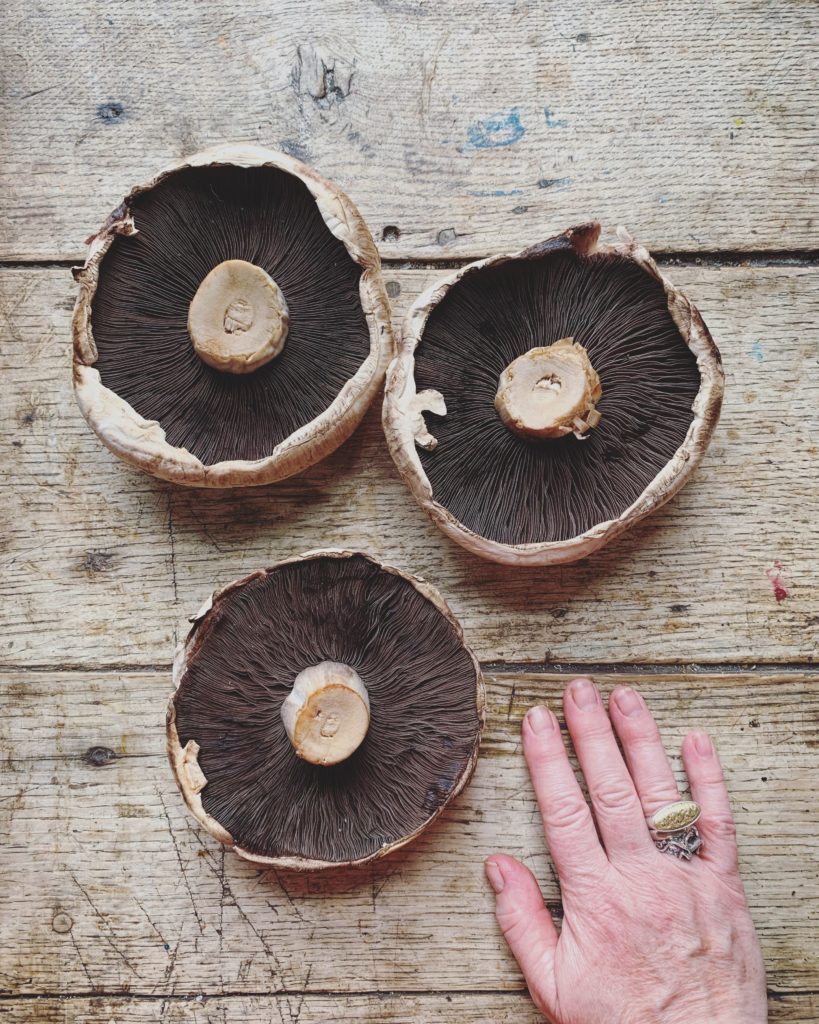

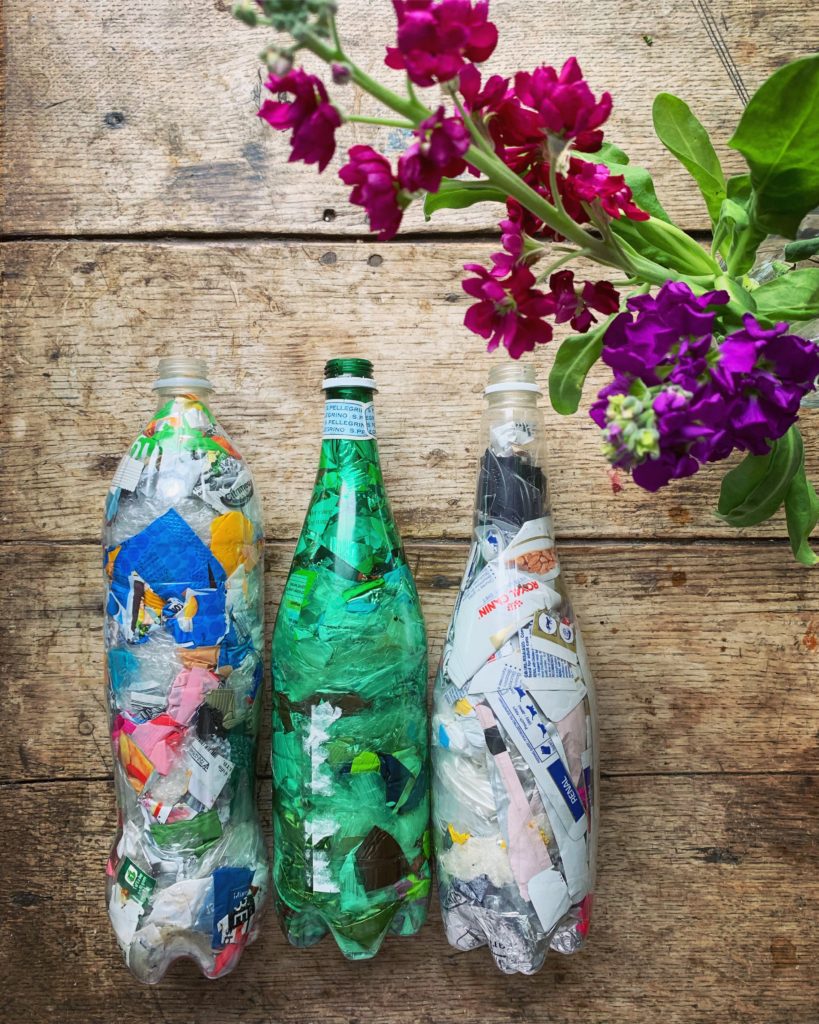
MaryAnn M Shupe
Posted at 15:03h, 02 MayInspiring me to do better!
Jen
Posted at 03:39h, 03 MayAm sharing your post far and wide! Thank you! x
5ftinf
Posted at 07:45h, 14 MayThank you SO much Jen…that means such a lot to me! x
betty
Posted at 12:52h, 03 MayI am thinking along the same lines as you, I think many of us are awakening to greed, over indulgence, how it impacts on our environment, I love your last few pictures, especially the one of you modelling your plastic waste! I am trying my best to reduce plastic use in our house – it’s just rife.
5ftinf
Posted at 07:55h, 14 MayIt’s so true isn’t and, and kind of horribly simple, but it’s really something to consider…and so pleased you like the pictures too. 😉